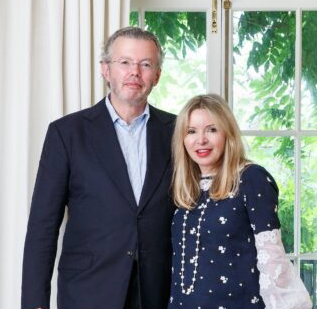Charities are facing a difficult winter amid rising demand and falling income that could leave one in five forced “to disappear”, a survey is warning.
The findings have emerged from a survey carried out by sector body the NCVO among 580 of its members in September around their concerns.
This also found that almost nine in ten (85%) are predicting “that this winter will be as tough, or even tougher, than the last”.
More than a quarter (27%) believe they won’t be able to meet increasing demand for their services.
“As charities across the country work towards another difficult winter, our latest research reveals the alarming scale of the challenges facing our sector,” said NCVO chief executive Sarah Vibert.
“With costs climbing, income falling and demand increasing, this is no longer just a cost-of-living crisis. For charities, who give so much to society, this is a cost of giving crisis.”
Almost three quarters (73%) of respondents told the NCVO that cost of their goods and services are continuing to rise, while more than two thirds (68%) are concerned about rising energy and utility bills.
Meanwhile, more than three in five (63%) say their wage bills are continuing to rise. Increasing insurance costs are a concern for half (51%) of charities, while more than a quarter (27%) are dealing with rising rents and mortgages.
“It’s important to note here that the majority of these costs are not optional, meaning no savings can be found to cut costs,” added Vibert.
“Our survey data shows that only 35% of charities believe they can navigate this crisis through cost cutting, suggesting many are already cut to the bone.”
📢 With costs climbing, funding falling and demand increasing, for charities who give so much, this is not just a cost of living crisis. This is a #CostOfGivingCrisis. pic.twitter.com/L4Wusz8SlP
— NCVO (@NCVO) October 30, 2023
The NCVO is calling on the government to end underfunding in public service delivery contracts to charities, warning that these are not being uplifted each year to reflect rising costs. It is a member of coalition Civil Society Group which last month wrote to Chancellor Jeremy Hunt calling for action to tackle underfunding in contracting.
Charities are also being advised to ask the public to donate their time. Almost half (45%) of charities say they plan to meet challenges of falling income and rising demand by recruiting more volunteers.
Earlier this month the National VCSE Data and Insights Observatory’s quarterly survey revealed that burnout and exhaustion has increased in three in ten charities.
“The combination of heightened demand, precarious finances and challenges recruiting volunteers and staff over the past year has taken its toll on the workforce,” said think tank Pro Bono Economics and Nottingham Trent University, which conducted the survey.













Recent Stories